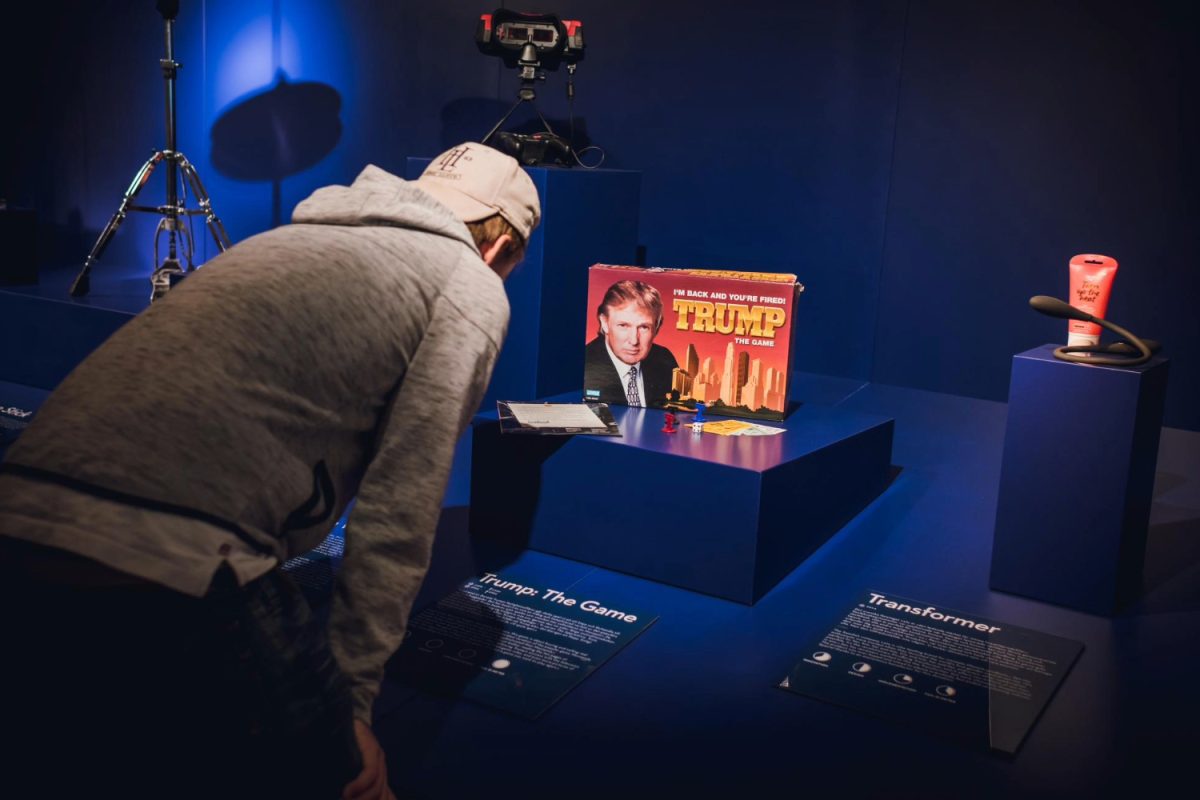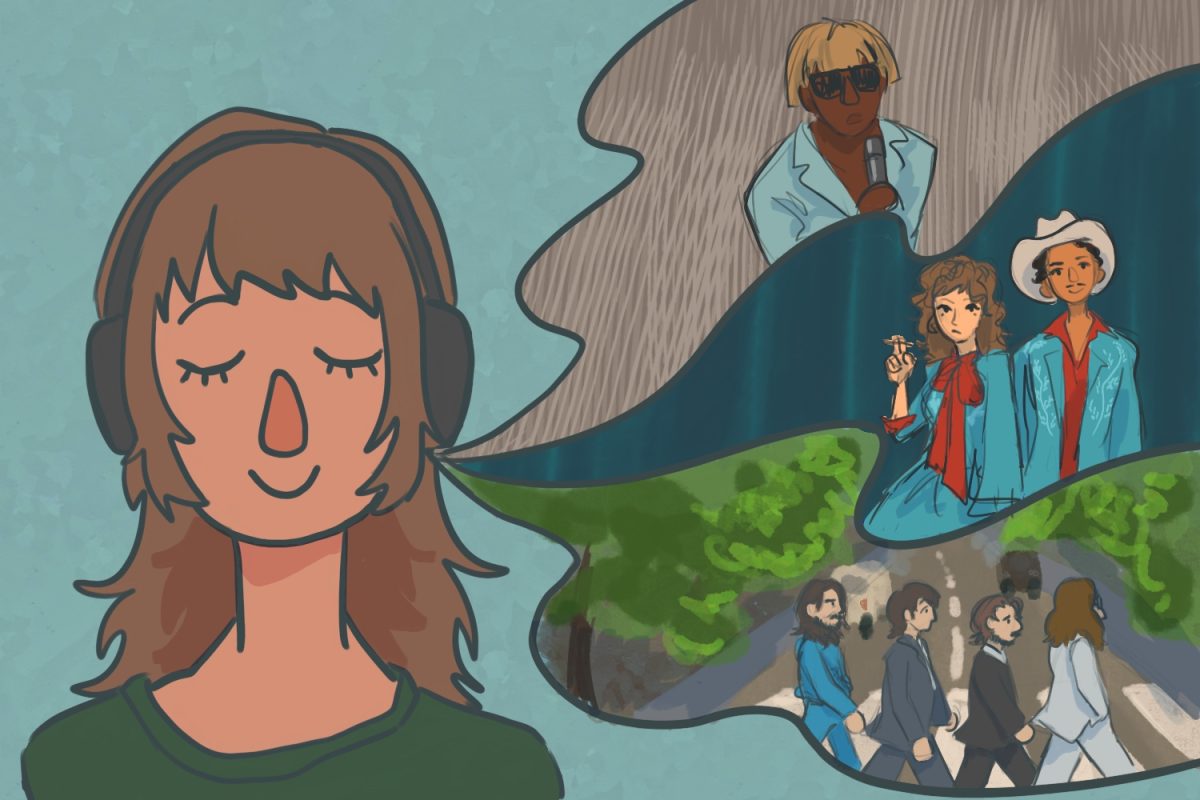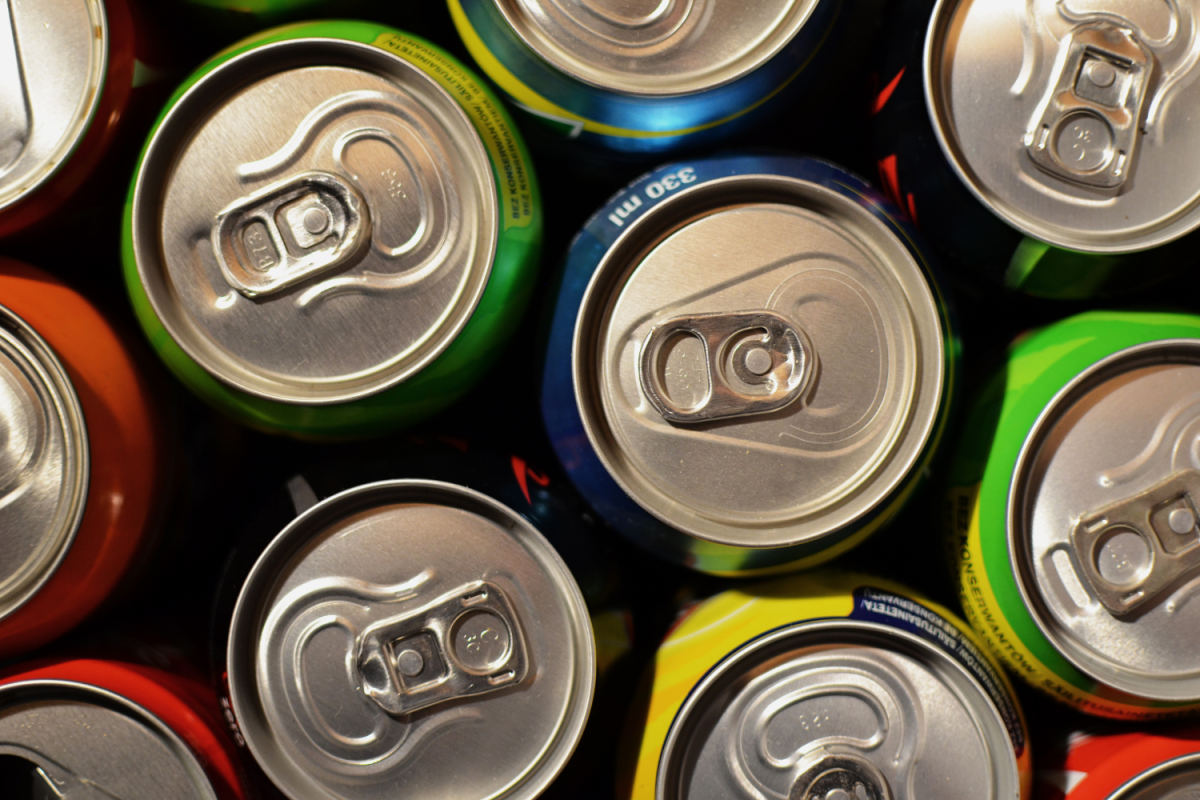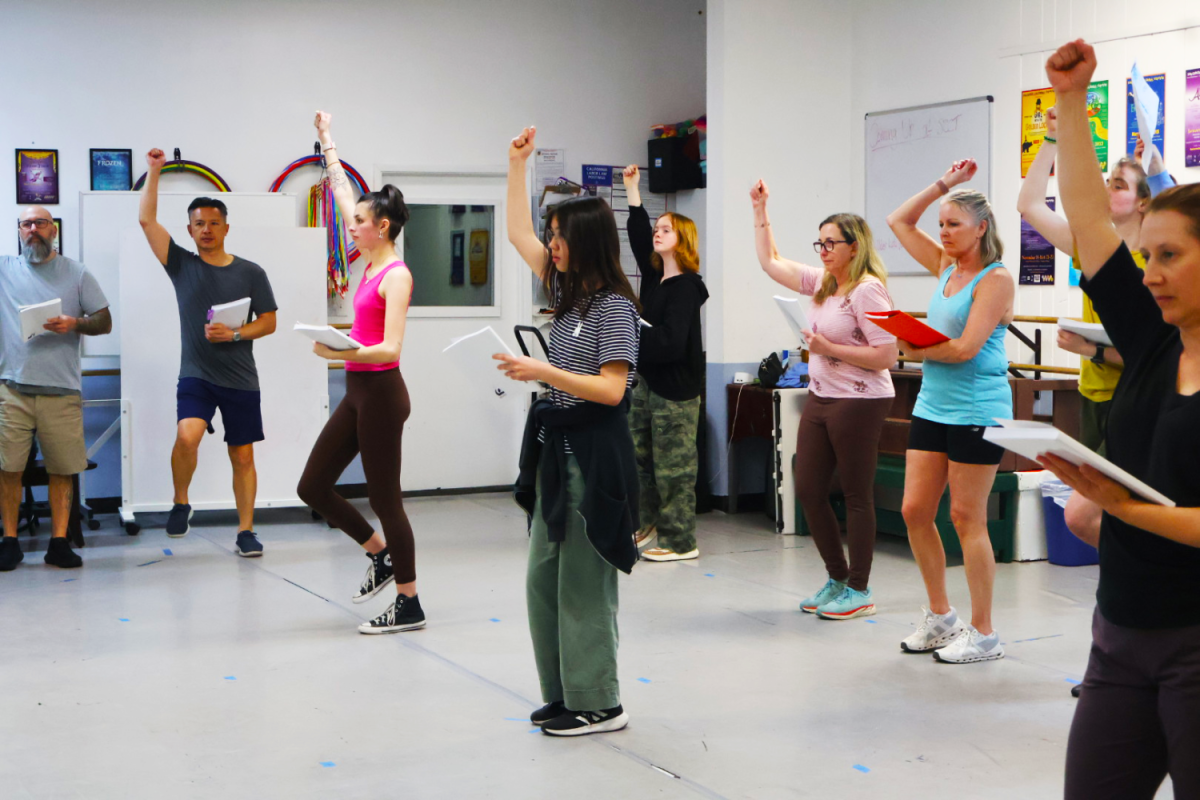The Museum of Failure, expected to launch in Fisherman’s Wharf on Mar. 21, has failed to open amidst an international legal conflict.
The museum features over 150 exhibits showcasing unsuccessful products from well-known companies — Theranos blood samples, Heinz purple ketchup, Google Glass, and replicas of Fyre Festival sandwiches. It also features TV commercials and explanations of mishaps in marketing the products.
“My idea was initially to create a small museum for other innovation researchers and consultants. This quickly changed when I realized how much interest there was in the museum,” said Samuel West, the museum’s founder, who has a Ph.D in organizational psychology.
As the museum grew, so did the issues with its management, leading to the current dispute.
In 2017, West opened the museum’s first stop in Sweden, where he lived. Two years later, he faced his first lawsuit from Niklas Madsen and Jenny Madsen, the design manager and speaker of Superlab’s strategic advisor, respectively.
Lina Berqvist, the Madsens’ lawyer, told The Local Sweden, a European digital news publisher, that West had started Superlab with the Madsens and created the Museum of Failure alongside them but illegally transferred it to his own company and did not pay them what they were owed as co-creators.
West argued that the Madsens were barely involved in the museum’s creation and had no right to its profits. However, he could not pay “escalating legal fees” and lost the case in a default judgment. This led him to declare bankruptcy and eventually leave Sweden for Spain.
The Madsens filed another lawsuit, which is ongoing, requesting their alleged lost earnings from the museum.
“Unfortunately, sometimes people act a little bit strange when money and success come around. There are oftentimes arguments after successful products,” said John Rowe, a business and marketing teacher at Carlmont who worked in product marketing and corporate marketing at Advanced Micro Devices (AMD) and Altera.
West further learned this upon expanding the Museum of Failure to America.
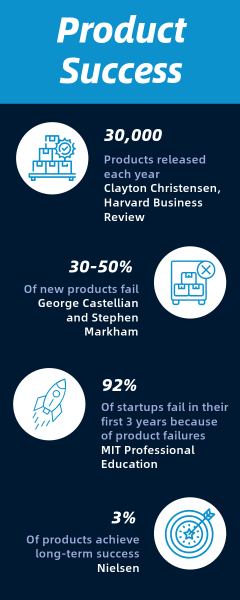
In 2017, West signed an agreement with Martin Biallas, CEO of SEE Global Entertainment Inc. (SEE), granting them an exclusive license to the museum’s content for five years, with the option to renew. West was to receive 20% of earnings and continue his own separate exhibitions as long as they were over 200 miles or 12 months away from SEE’s exhibitions.
West claims that he did not receive his 20% and, in 2023, hired a lawyer to extract his payment. He also complained that Biallas applied for a trademark for the wordmark “Museum of Failure,” which he received despite no longer owning the rights to the museum.
In response, Biallas’ lawyer argued that West’s ownership dispute with the Madsens meant West may not have legal status to claim the business for himself either. A SEE spokesperson also stated that their payments to West had gone to his creditors due to his bankruptcy.
In 2025, SEE began advertising a new temporary exhibit of the museum, which would take place in the space previously held by Madame Tussauds in San Francisco’s Fisherman’s Wharf.
West was not a part of this and believes that its opening is fraudulent.
“The person that was planning to open in San Francisco is the owner of the exhibition company I partnered with to manage the touring exhibition in the U.S. He has stolen my items and potentially even the exhibition itself,” West said. “I feel angry. The same as you would feel if someone tried to steal something you have put nine years of work into.”
SEE continues to state that, as they possess international trademarks, intellectual property, and assets, they have the right to present the museum at their own discretion.
“We own the IP, we own the trademark, and we own the exhibition units that we have invested almost $1 million in, and I told you a zillion times that I have every intention of recouping our investment, with or without your involvement…You interfering in our business relationships is illegal,” Biallas said in an alleged message to West.
In the alleged messages provided to the San Francisco Standard, Biallas stated his intent to send West a cease and desist request, sue him for interference and damages, get an injunction, and get a restraining order.
“We will also do a press release about why we’re no longer working with you and your bankruptcy,” Biallas said in another alleged message. “I’m so furious that I will fight you all the way.”
Additionally, SEE’s attorney told ABC7 News that West’s claims were “absolutely false” and that West is not entitled to any tour profits.
In response, West resurrected the museum’s original website and warned visitors against buying tickets for the San Francisco exhibit, saying that Biallas was “planning to open without permission.” The original website features pictures, videos, and descriptions of each exhibition for free.
Whether his efforts paid off or other factors were at play, the San Francisco exhibition did not open as scheduled. On the Museum of Failure website run by SEE, there remains no way to purchase tickets, and the message that appeared prior — providing visitors the chance to sign up to receive an email when tickets became available — is still up, even though the exhibit was supposed to have already begun.
“It seems that the exhibition is canceled. And yes, the disagreement remains unchanged. I own and operate the Museum of Failure internationally. If the thief opens a counterfeit exhibition in the U.S., I will need to deal with that issue when it happens,” West said. “There is only one legitimate copy, run by an avid collector and venture capital investor, which I totally support.”
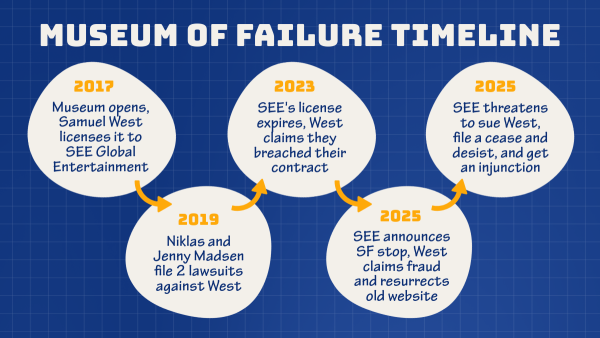
Despite the interpersonal challenges, West feels he has gained a lot by starting the museum.
“I had no idea how to create or operate a museum at first — I even accidentally bought a domain with a spelling error. Almost a decade later, it has given me a massive boost to my consulting career, given me the chance to travel the world, and made some money also,” West said. “I hope it continues being a source of knowledge and inspiration.”
The exhibition appeals to many, including those with their own business experience.
“I think the Museum of Failure is a brilliant idea. I’d love to go. It’s a lot of fun to see some of those products that were introduced, and there’s a lot of funny lessons to be learned. I think learning from failure, not just from a personal development standpoint, but also from a business standpoint, is extremely valuable to future success,” Rowe said.
Carlmont senior Jennifer Luo started a non-profit small apparel business, Healing Steps, to raise funds for stroke survivors as a tribute to her grandfather’s resilience during his own stroke rehabilitation. She, too, believes that failure, as shown in the museum, can be valuable.
“I think that certain failures can be great learning lessons. The most important skills in business are adaptability and creativity. In the process of building a business, challenges and setbacks are inevitable. It is incredibly important to be able to approach these challenges with a growth mindset and adapt the product or business to address those challenges or pivot to avoid those setbacks,” Luo said.
She has personally experienced the benefits of failure and adaptability in her own business.
“I was initially unable to successfully create my first design because the manufacturer that I found did not have the correct fabric color. This failure forced me to adapt my design, but in the end, it turned out better than I had expected. Sometimes, failure can be a great opportunity for further innovation,” Luo said.
Rowe thinks visitors to the museum could take away a similar message.
“There have been many product failures, and a lot of the time it’s not really about the products, it’s more about the timing. Two clear examples of this are tablet PCs from companies like Microsoft, prior to the iPad, and Google Glass, which was similar to what Meta and Ray-Ban are now partnering up to develop,” Rowe said.
Ultimately, many believe the Museum of Failure can teach its visitors about perseverance no matter who runs it.
“That failure is not wasted if we learn from it. It is an essential element to all progress,” West said.

